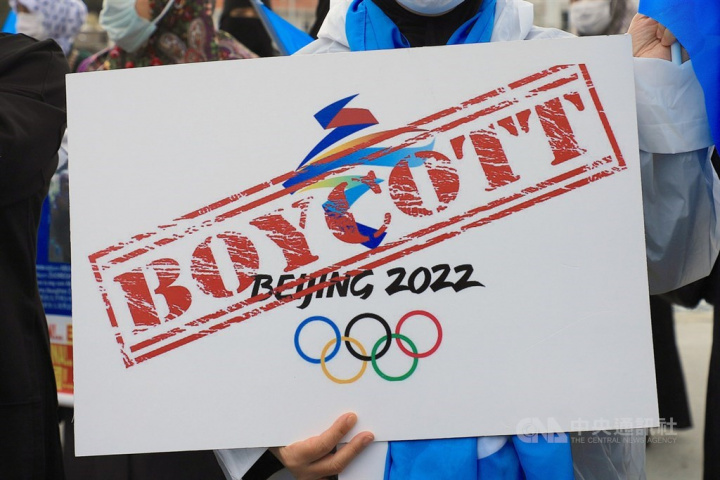
Taipei, Dec. 1 (CNA) Opposition lawmakers and human rights groups talked tough Wednesday about Taiwan boycotting the 2022 Winter Olympics in China, but the legislative resolution they proposed on the issue falls short of that goal.
The New Power Party (NPP) and the groups said a boycott had to be considered because of what they called human rights abuses in China and Beijing's military intimidation toward Taiwan.
China "is not fit to be the host country of the Olympic Games" given the country's long history of human rights violations and disregard for democratic values, (NPP) chairperson and legislator Chen Jiau-hua (陳椒華) said at a press conference Wednesday.
Beijing has frequently deployed People's Liberation Army aircraft on military exercises near Taiwan to exert military pressure on Taiwan, Chen said, and she called on other parties to support a resolution put forth by the NPP earlier this month.
The proposal, however, only urges the Cabinet to "carefully assess and pay attention to international efforts to boycott the 24th Winter Olympics in Beijing in 2022 and come up with a correct response at an appropriate time."
It is now set to be discussed in cross-party negotiations.
Speaking of the proposal, Chen told CNA that it was important for Taiwan to take a stance on the Winter Games, which are scheduled for Feb. 4-20, 2022, because it participates in the international community.
Although Taiwan is a small country, it should uphold its fundamental values such as democracy and human rights, Chen said.
According to the rights groups, they believe the government should boycott the Winter Games, Yang Sen-hong (楊憲宏), founder of the Taiwan Association for China Human Rights, told CNA.
But the main goal of passing the proposed resolution is to put pressure on the Cabinet to take a stance on the Beijing Olympics and stand with other democratic countries and address the Winter Olympics in ways that are aligned with the international community, he said.
With the Beijing Olympics taking place in about two months, human rights organizations around the world have been calling on democratic governments to diplomatically boycott the Games as a means to protest against the human rights situations in Xinjiang, Tibet and Hong Kong.
A diplomatic boycott would mean that no high-level government officials would be sent to Beijing.
A boycott of the Beijing Games would not have major consequences for Taiwan. Considering the poor relations between Taipei and Beijing, Taiwanese government officials are not likely to attend in any case.
Also, Taiwan traditionally sends few athletes to the Winter Games, having only sent four to Pyeongchang, South Korea, in 2018 and three in Sochi, Russia, in 2014. It is not yet clear how many will qualify for the event this year.
Still, NPP Legislator Wang Wan-yu (王婉諭) said her party and human rights groups supported Taiwanese athletes competing in international competitions, but at the same time deemed it equally important to speak out on human rights issues.
"If we wish to protect athletes, we should not be afraid to speak out" against China, Wang said, referring to the alleged disappearance of Chinese tennis star Peng Shuai (彭帥) after she accused China's former Vice Premier Zhang Gaoli (張高麗) of sexual assault in early November.
Although the International Olympics Committee said in a statement on Nov. 21 that Peng "was doing fine," concerns about her safety and well-being remain.